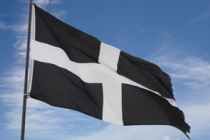Kernow, a land apart - Kernow, tyr dyberthys
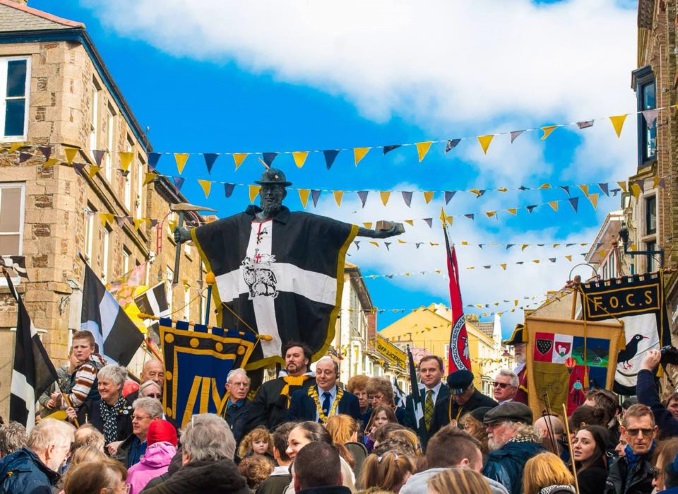
Yth eson-ny an le-ma.(1)
The Cornish and Welsh are the oldest peoples on this island and as a proud Welshman I look forward to seeing Saint Piran’s flag flying with extra Celtic pride on March 5 next year.
-Stephen Williams MP Parliamentary Under Secretary of State for Communities and Local Government at Westminster, 24th April, 2014 on the announcement of formal recognition of the Cornish.
Having recently witnessed some 6,000 people process through the streets of Falmouth in Cornwall in memory of a much respected local beat police officer, PC Andy Hocking, who suddenly and tragically died aged 52, it has become increasingly apparent that Cornwall is a very special place. The procession ended with the singing of that ever popular Cornish anthem 'Trelawny' written as 'The Song of the Western Men' in 1824 by the Reverend R.S. Hawker. I don't suppose many other places in the British Isles would see such a thing. They certainly would not have sung this song. Andy was a local man and a fine Cornishman. The singing of what has become widely recognised as the Cornish National Anthem was entirely appropriate.
A good sword and a trusty hand!
A merry heart and true!
King James's men shall understand
What Cornish lads can do!
And have they fixed the where and when?
And shall Trelawny die?
Here's twenty thousand Cornish men
Will know the reason why!
Out spake their Captain brave and bold:
A merry wight was he:
'If London Tower were Michael's hold,
We'd set Trelawny free!
'We'll cross the Tamar, land to land:
The Severn is no stay:
With "one and all," and hand in hand;
And who shall bid us nay?
'And when we come to London Wall,
A pleasant sight to view,
Come forth! come forth! ye cowards all:
Here's men as good as you.
'Trelawny he's in keep and hold;
Trelawny he may die:
But here's twenty thousand Cornish bold
Will know the reason why!'
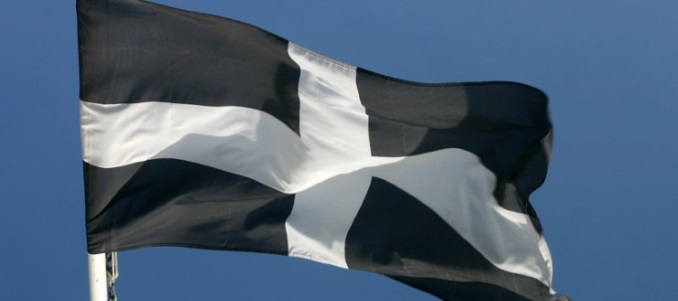
A few weeks ago, I was part of another large crowd of thousands in my hometown of Redruth and on this occasion we had come together to celebrate St. Piran, the 5th century Irish Saint Ciarán of Saigir and patron of tin miners now fondly adopted as Cornwall's National Patron Saint. His flag of black with a white cross is the flag of Cornwall, again, an almost National emblem. It is said to represent the white of molten tin on black ore. We processed in our thousands across Cornwall over Piran tide, the actual day being March 5th but in true Cornish style, the celebrations lasting for several days. Young and old, we sang 'Trelawny' many of us with tears of pride, we waved our flags and we danced.
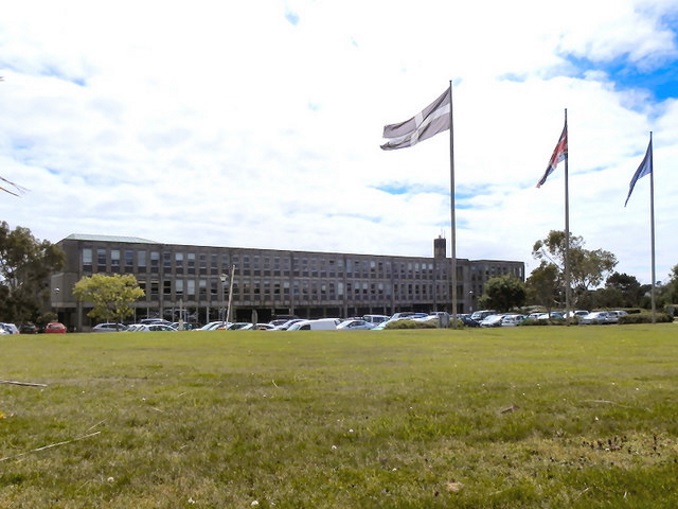
The 'Baner Pyran' (Piran's flag) is seen commonly across Cornwall these days and more and more refer to our ancient Celtic land as 'Kernow' rather than the English imposition 'Cornwall'. The Piran flies proudly outside the seat of government in Cornwall, Cornwall Council's 'Lys Kernow' (Cornwall Court) in Truro and at many other places, official and not. It is often seen and flown by the widespread Cornish diaspora around the globe, for, just as with the Irish, in the face of economic crisis, our forefathers left their homeland in their droves and travelled far and wide in search of mining work. Simple in design our flag may be, but we are proud of it.
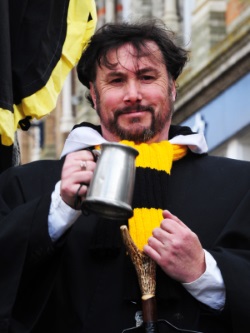
The Cornish call their land 'Kernow', a term believed to have been in use for over 2000 years. The name Cornwall, like Wales, is derived from the Saxon word 'wealh' meaning 'foreigner', the 'Corn' element possibly meaning 'peninsula', hence ironically, these newcomers labelled us 'peninsula of foreigners'. In early English references, Cornwall is sometimes described as ‘West Wales’. Similarly the Saxons named Cymru 'Wealh' which corrupted to 'Wales' - ‘foreigners’. Of course, the people of Wales and Cornwall were the one people until driven apart by the Anglo Saxons in 577AD during the battle of Deorham Down.
That Kernow, her people and their ascendant Brythonic language which is very closely related to Welsh and Breton and more distantly to the Gaelic tongues, are still around in the 21st century is a remarkable testament to the enduring character of the race.
The Cornish have this in common with their fellow Celts, for despite years of attempted assimilation by the English state, we still retain and celebrate many differences.
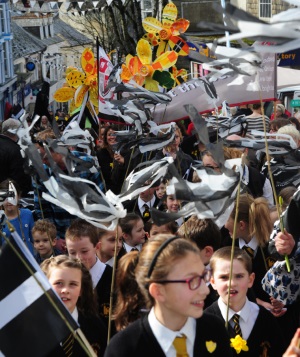
This has resulted in two astonishingly historic actions by the ever distant government in Westminster during this early part of the century.
In 2002, the Cornish language, more properly 'Kernewek', was recognised under Part II of the Council of Europe’s European Charter for Regional or Minority Languages. This Charter requires the UK Government to ensure the needs and wishes of Cornish speakers and people wanting to learn Cornish are taken into consideration.
Later, on 24 April 2014, the Westminster government announced that the proud history, unique culture and distinctive language of Cornwall will be fully recognised under European rules for the protection of national minorities. That decision to recognise the unique identity of the Cornish, now affords them the same status under the European Framework Convention for the Protection of National Minorities as the UK’s other Celtic people, the Scots, the Welsh and the Irish. For the first time the government has recognised the distinctive culture and history of the Cornish just as UNESCO has recognised our mining heritage.
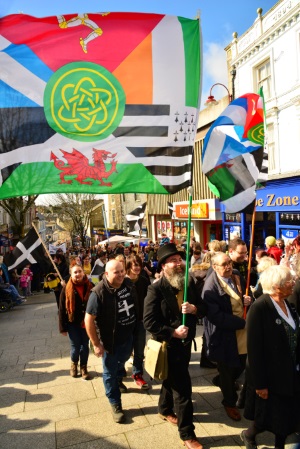
Both these things were not easily achieved. They took years of constant campaigning and almost outright militancy by very determined Cornish people. Time will show the importance of these two acts and both have resulted in a very noticeable change of attitude by those identifying as Cornish and by others. The Cornish, myself included, always knew that we were not English despite every attempt to force that identity on us. We knew we were no better or worse than the English, we just simply were not. Now we have regained our confidence and we have legislation on our side.
This past few months have seen major policy changes by the current guardians of many Cornish heritage and historical sites, the quango 'English Heritage', which is widely despised in Kernow. They are now taking the Cornish peoples' views into consideration and as the Grand Bard of Gorseth Kernow recently announced, it will be our Piran flag flying over the monuments in future and not that of the country next door.
The full impact of National Minority status has yet to be realised but for sure it will create one far greater than initially envisioned by many.
This does not mean that our long campaign for nationhood is over, far from it. Just as with other Celtic Nations, we are frequently subject to attacks from the England based press, media and establishment and we are constantly fighting for what is rightfully ours. But now, we have a few 'tools' in our kit box and we shall be using them.
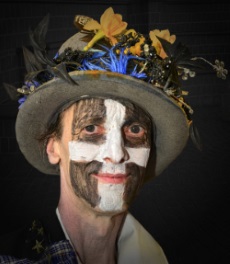
I recently responded to a curiously Anglo-centric academic who sneered at Kernow's aspirations of nationhood. In my letter, I referred to the accepted dictionary definition of a nation which is 'a large body of people united by common descent, history, culture, or language, inhabiting a particular state or territory'.
There can be no argument that the Cornish people and their ancient homeland easily fulfil each of these conditions and much more. The most recent Census saw record numbers declare their identity and ethnicity as 'Cornish', over 500 declared Cornish to be their first language and thousands of others are recorded as being bilingual and learning the language. Substantial numbers of books are now being written in or translated into Kernewek. Very encouragingly, the 'Pupil Led At School Census' (PLASC) for 2014 shows the number of pupils in Kernow who identify as Cornish to be 48%, up from 23.7% in 2006!
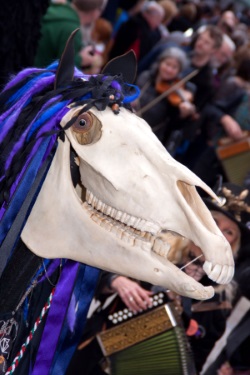
Our common descent, history and culture is widely accepted, pleasingly by many who choose to make our land their home. It was my distinct privilege and pleasure to invite as my personal guests in the St. Piran procession I participated in, a Black Minority Ethnic campaigner and friend and his family as well as a member of Cornwall's small but devout Muslim community. Black children joined with their white friends and blackened up their faces and then superimposed the white cross of Piran. People of many faiths and beliefs and also those of none joined in celebration. I was proud to see this. These accept and respect our difference and diversity and as a Celt and a Cornishman, I accept and warmly welcome theirs'. There is no superiority or imperialism here. We have progressed far beyond that and as a Celtic people, we are not insular as are some in these islands, for we sit on the traditional sea trading routes of Europe, international before the word was ever known. Not for nothing is our Cornish motto ‘onen hag oll’ – ‘one and all’
So with that outward facing spirit, Kernow proudly enters the Pan Celtic Competitions and Festivals and is rightly proud to do so, the song and music competitions, the film events, sporting fixtures and so on, as well as actively participating in Celtic language conferences and the Celtic Congress and Celtic League.
The Cornish feel at home amongst their fellow Celts for we are of like minds.
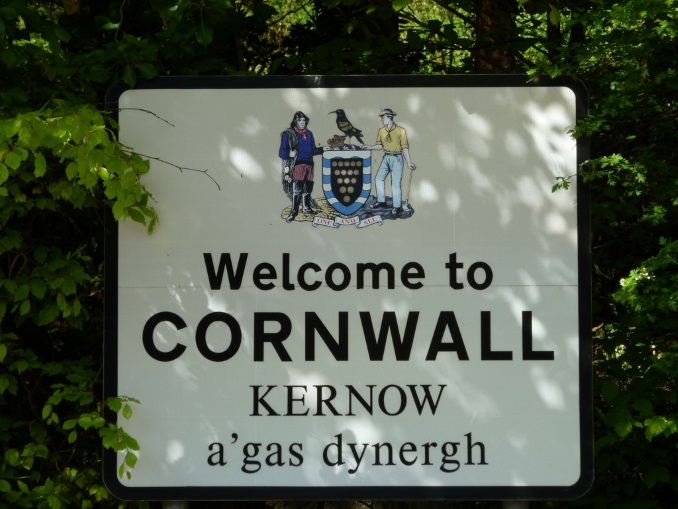
More and more have told me that they feel as I do when returning home to Kernow to be greeted at the border by signs announcing 'Kernow a'gas dynergh' - Cornwall welcomes you. When on crossing the River Tamar which separates us from England, for our country is otherwise surrounded by the sea on all other sides, and the river itself remembers the name of the ancient goddess of rivers 'Tamara', they too feel a sense of relief, a sense of place and a sense of being at home.
There is a word in the Cornish language - 'Hyreth'. In Welsh, the word would be 'Hiraeth'. The meaning of that word is best translated as a yearning for home, a homecoming, but yet more than that, a love for one’s Country that is undeniable, the essence of one’s being.
We feel this about ourselves and about our homeland, our Celtic Nation of Kernow - a land apart.
Kernow bys vyken!(2)
Michael J Chappell
(1) Yth eson-ny an le-ma - we are of this place
(2) Kernow bys vyken! - Cornwall for ever!
About the author

Mike Chappell serves as a local Councillor in Cornwall, is a keen pan Celticist and political campaigner and member of An Kesunyans Keltek Scoren Gernewek, the Cornwall Branch of the Celtic League, occasional published poet, broadaster and columnist, member of Agan Tavas the Society for the Protection and Promotion of the Cornish Language and a Bardic member of the Order of Bards Ovates and Druids where his name is 'Myghal Map Serpren' Cornish for 'Michael Son of Carpenter' - which he is.
References
Official recognition of the Cornish language: webarchive.nationalarchives.gov.uk/20060130194436/gosw.gov.uk/gosw/culturehome/heritage/cornish
Official recognition of the Cornish: www.gov.uk/government/news/cornish-granted-minority-status-within-the-uk
Framework Convention for the Protection of National Minorities: conventions.coe.int/Treaty/en/Treaties/Html/157.htm
Photographs In Order of Appearance
St Pirans Day Redruth 2015
St Pirans flag
Cornwall Council Lys Kernow
St Piran played by local Tony Leamon
Cornish children
Celtic League flags
Cornish face
Old ways widely accepted - Penkevyll the 'oss
Kernow a'gas dynergh
Michael Chappell with Celtic League banner
- Cornish
- English
- Log in to post comments

